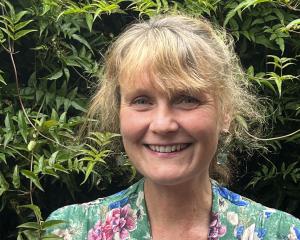A catch-up over coffee nearly landed the Mosgiel Taieri Community Board in hot water after members of the public complained it was meeting in secret.
Under the Local Government Official Information and Meeting Act (Lgoima), all meetings of local government bodies (including community boards) must be advertised and agendas and reports made available two days prior to the meeting.
Mosgiel Taieri Community Board chairman Bill Feather said that during the last term, board members had met informally each month before the public meeting to raise issues for the agenda, but no motions were passed or decisions made.
''It wasn't that we were unaware of the rules around holding meetings in private but we believed, and still do, that what we were doing didn't go against the Act.''
Before the first meeting this term, the board intended to hold an informal meeting and let new members ask questions about procedure, Mr Feather said.
Dunedin City Council corporate services manager Sandy Graham contacted board members after receiving complaints about the meeting and it did not go ahead.
The board then asked Ms Graham to clarify the situation about non-public meetings and she advised they were not covered under the Act so were not encouraged.
''The key principle of Lgoima is about transparency and openness,'' she said.
If community boards did want to meet in private, they could do so as long it was advertised publicly.
''I'm not in any way saying the previous board did not follow the Act. This is about being transparent and open.''
No complaints had been made about other community boards holding non-public meetings but members were advised about their responsibilities under Lgoima when they were sworn in, she said.
Mr Feather said the board would follow Ms Graham's advice and use more briefings and workshops instead.
Former board member Brian Miller was critical of the non-public meetings during his time on the board, and was pleased the council had addressed the issue.
After attending two of the meetings last term, he said he felt uncomfortable about some of the discussions that took place and refused to attend any more.
He felt once he did that, he was left out of decision-making because motions were being passed without much debate.
''You could never be sure of what was said at these meetings even if it was above board, because it was in private, which was the issue,'' he said.
It was possible the pre-agenda meetings had been board practice for some time and as new members had come on, they had thought it was acceptable.
Advertisement












